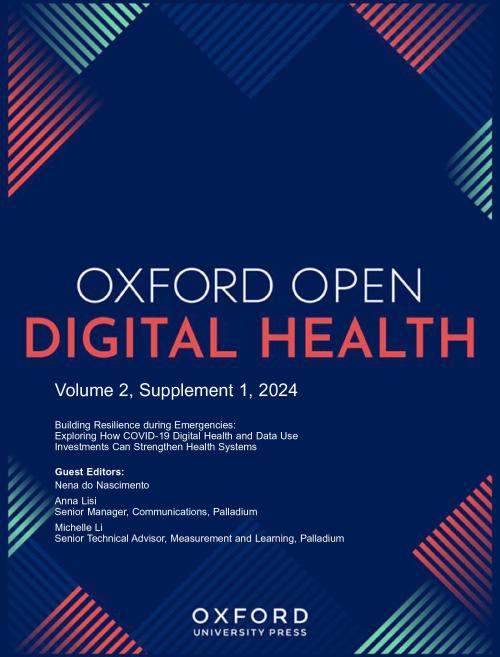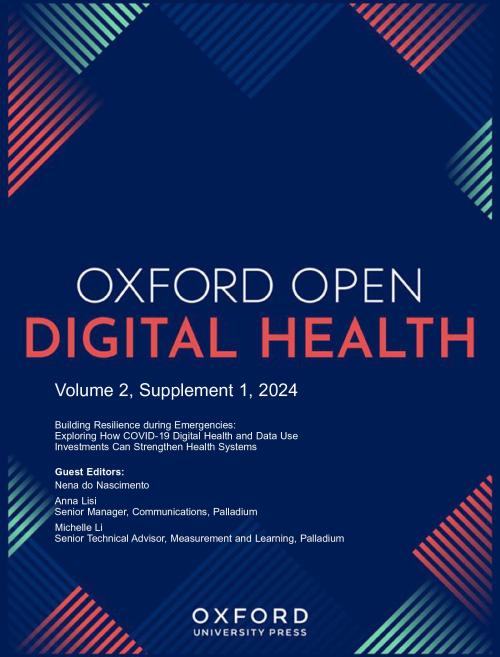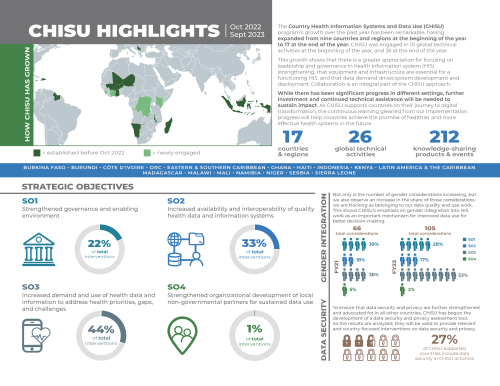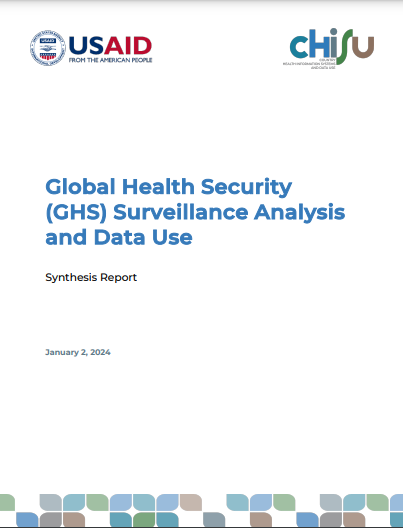Resource Library
We found 4 resources.

There is limited research on how emergency investments can support national health information system strengthening both for a given health emergency response and for routine health program areas.

Digital health global goods software are accessible, adaptable and scalable tools that can contribute to strengthened health data management and service delivery.

CHISU Highlights from October 2022–September 2023
The Country Health Information and Data Systems Use (CHISU) program experienced remarkable growth from October 2022–September 2023, expanding from nine countries and regions at the beginning of the year to 17 at the end of the year. CHISU was engaged in 10 global technical activities at the beginning of the year, and 26 at the end of the year.

Global Health Security (GHS) Surveillance Analysis and Data Use
This study assessed the gaps in the use of disease surveillance data for public health emergencies in Burkina Faso, Burundi, Ghana, Kenya, and Madagascar to identify opportunities for better integration of surveillance data with both routine health data and non-health data.